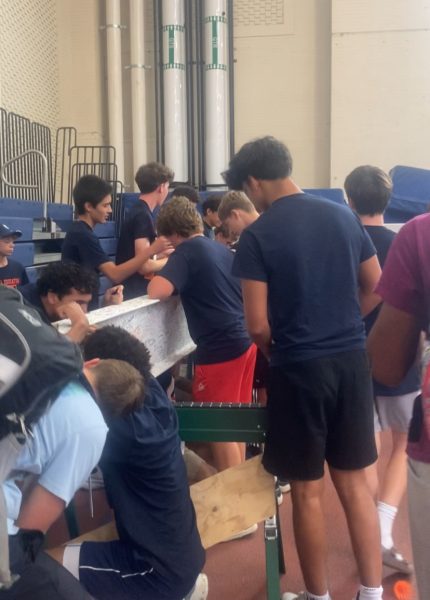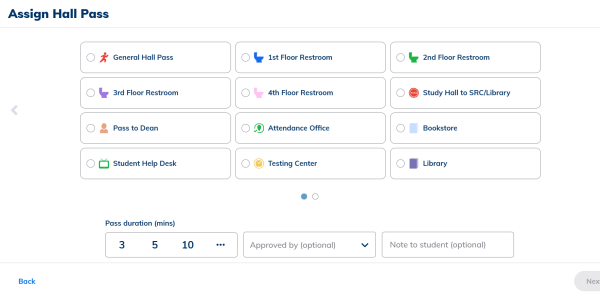Hallway sweeps return
Hallway sweeps have returned to Oak Park and River Forest High School.
This protocol, designed to get students to class on time, was introduced last year during the spring semester. The administration brought it back during the second semester of this school year to reinforce the importance of being on time to class.
When a sweep occurs, safety and support and deans are visible in the halls during the entire passing period. The sweeps are random to incentivize students to get to class on time, because a sweep could happen at any time. On a day with a sweep, the halls are swept during one or two periods out of the eight total.
The process of being swept takes about five minutes, according to OPRF Dean Johnathan Silver. “After the bell rings, our staff directs students to a designated area. After ensuring that all students have arrived at the spot, a dean explains the purpose of the sweep and next steps.”
“Students are afforded the opportunity to ask questions,” Silver added “We then have staff issue late passes to students so they can head to class. We document in Skyward in order to keep track of how many times students have been part of a sweep as it helps to guide further intervention.” If a student is repeatedly swept, a parent or guardian will be contacted.
Sweeps have come under scrutiny from OPRF students. One common criticism is sweeps actually make students even more late, which results in further lost instructional time.
OPRF senior Christina Anthony was swept last year. “I was off to band and ended up being right by the door when the bell rang, and they made me go to the hall sweep area. I know I was late, but it was by mere seconds. When we were sitting in the room, they lectured us about missing curriculum by being late to classes, and I just want to say, how ironic,” said Anthony. ”After the lecture I missed the whole warm-up” with the band.
In response to this criticism, Silver said, “First of all, this is a fair question. We do everything in our power to ensure that students are in class on time, every time. There is no substitute for lost instructional time. Unfortunately, we have seen more wandering and less urgency to get to class as semester one progressed.
“This is not to say all students are doing this,” he continued “In fact, most students are in class on time. This process allows us the opportunity to have direct communication with students and to get them to class as quickly as we can.”
Another criticism of the sweeps is that they pose an equity issue. OPRF Senior and leader of SAFE (Students Advocating for Equity) Taylor Montes-Williams had some criticisms of the process. “We talk about the school-to-prison pipeline and how a big contributor to it is punishing students for minor offenses … What benefit does it have for the student?” Williams asked.
Silver wants to reinforce that the sweeps are not supposed to be punitive. “Equity is a guiding principle and endeavor of OPRF,” he said “Before discipline in the traditional sense is employed, students are given warnings, parents are contacted and we give students the ability to reflect on why they are late to class. We are particularly concerned with students who are chronically late and get caught up in sweeps consistently.
Silver also directly addressed the school-to-prison pipeline, and notes that it is a concern of the school’s policy making decisions. “The school-to-prison pipeline is well-researched, and our Behavioral Education Plan is devised with this in mind. Exclusionary practices such as out-of-school suspensions, zero tolerance and expulsions are linked to the school to prison pipeline. Sweeps are more driven by intervention and in the case of consequences, we will not implement exclusionary practices,” said Silver.





